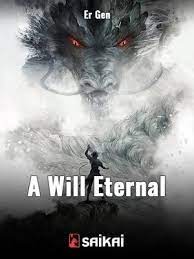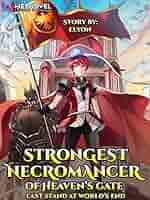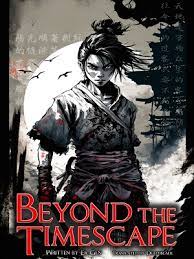The Story in 3 Sentences
Bai Xiaochun, a boy raised in a backwater village with a pathological fear of death, stumbles into the world of cultivation not for glory or power, but for one sacred goal: to live forever, no matter how many elixirs he has to brew or how many times he fakes his own death to escape danger.
As he rises through the ranks of the Spirit Stream Sect and beyond, his cowardice becomes legend—yet so does his genius, as unorthodox tactics, alchemical mastery, and sheer survival instinct carry him through wars, betrayals, and divine confrontations that would break any ordinary cultivator.
What begins as a farcical quest for immortality evolves into a profound journey of loyalty, sacrifice, and willpower, where the weakest link in every chain becomes the most unpredictable force in the universe—the one whose will refuses to die.
Why It Stands Out
1. The Coward Who Became a Legend
Bai Xiaochun isn’t just funny—he’s revolutionary. In a genre saturated with cold, invincible protagonists who crush enemies without blinking, he sobs, runs, hides, and still wins. His fear isn’t a flaw to be erased, but a core trait that shapes his brilliance. He doesn’t charge into battle; he rigs the battlefield with explosives, poisons, and decoys. He doesn’t duel immortals—he tricks them into swallowing fake pills and escapes in a smoke bomb. This inversion of xianxia tropes doesn’t mock the genre—it reinvents it, proving that survival isn’t shameful, and that the desire to live can be more powerful than the will to dominate.
2. Alchemy as Comedy, Cultivation as Chaos
The novel turns alchemy into both high art and slapstick theater. Bai Xiaochun’s lab is a disaster zone of exploding cauldrons, mislabeled ingredients, and accidental super-potions that turn disciples into frogs or gods into weeping children. Yet beneath the chaos lies real depth: each pill formula, spiritual resonance, and meridian breakthrough is grounded in authentic cultivation logic. The humor never undermines the system—it enhances it. Readers laugh at the absurdity, then pause to appreciate the meticulous worldbuilding. It’s a rare balance where a farting immortal beast can coexist with a philosophical meditation on the nature of eternal life.
3. A World That Laughs While It Burns
“A Will Eternal” doesn’t just alternate between comedy and drama—it layers them. A funeral scene might be interrupted by a ridiculous misunderstanding, only for the punchline to collapse into genuine grief moments later. The tonal dexterity keeps readers off-balance in the best way. You’re never sure if the next chapter will make you snort tea or stare at the wall in silence. This emotional volatility mirrors Bai Xiaochun’s own psyche: a man who jokes to hide fear, who brags to mask insecurity, and who, when the world is ending, stands tallest not because he’s fearless, but because he’s too stubborn to fall.
Characters That Leave a Mark
There’s Xu Baocai – the loyal friend who matches Bai Xiaochun’s absurdity with his own brand of chaotic energy, turning every serious mission into a two-man comedy act, yet whose unwavering support reveals a deeper bond built on mutual survival.
You’ll meet Huan’er, not just a love interest, but a force of nature whose fiery spirit and unshakable faith in Bai Xiaochun cut through his cowardice like sunlight through fog, becoming the emotional anchor he never knew he needed.
Then there’s the Patriarch of the Spirit Stream Sect, not a distant mentor, but a calculating leader who sees Bai Xiaochun’s antics as both a liability and a weapon, using his unpredictability as a strategic asset in sect wars that span lifetimes.
And Grandmaster Iron Pipe? He’s the one who wields a metal rod like a divine scepter, a gruff elder whose harsh exterior hides a fierce protectiveness over the sect’s young, embodying the tradition and absurdity of cultivation elders who take their titles—and their nicknames—very seriously.
The Flaws Fans Debate
The early chapters lean heavily into repetitive gags—Bai Xiaochun faking death, running from shadows, or panicking over minor threats—which some readers find hilarious but others see as dragging the pace and delaying real progression.
Certain plot arcs stretch over hundreds of chapters with cyclical conflicts, making the narrative feel meandering to fans who prefer tighter, more action-driven storytelling.
While the humor is a highlight, it occasionally undercuts the gravity of major events, with tonal shifts that can feel jarring when a world-ending crisis is followed by a joke about explosive diarrhea pills.
Translation quality varies across platforms, with some versions losing nuance in dialogue or misrepresenting cultivation terms, affecting immersion for non-Chinese readers.
Must-Experience Arcs
Ch. 1–400: The Spirit Stream Sect Arc – Bai Xiaochun enters the sect as a terrified novice, accidentally becomes a pill god, fakes his death multiple times, and survives through sheer luck and ingenuity, laying the foundation for his reputation as the luckiest coward in cultivation history.
Ch. 401–900: The South Domain and Sect Wars – Bai Xiaochun expands beyond his sect, navigates political alliances, faces rival cultivators, and begins to grow into a true force, where his tricks start having real consequences and his relationships deepen with lasting emotional weight.
Ch. 901–1317+: The Path to Eternity – The stakes become cosmic as Bai Xiaochun confronts ancient immortals, unravels the truth behind the world’s creation, and makes the ultimate choice: to vanish into legend or become the eternal will that binds existence itself.
Killer Quotes
“One will to slaughter countless devils. One will to eradicate innumerable immortals. Only my will… is eternal.”
“Live forever…. that is my only true wish.”
“The path of cultivation is as unpredictable as life itself.”
“I will be the one who controls life and death, even if it kills me.”
“If you think I’m weak, just wait—my next explosion will be your last breath.”
Cultural Impact
Bai Xiaochun’s “I don’t want to die!” meme has become a staple in xianxia communities, used humorously in reaction images, videos, and fan comics across Reddit, Twitter, and Chinese forums.
The phrase “another fake death by Bai Xiaochun” is now shorthand for any dramatic yet ultimately harmless betrayal or disappearance in webnovel discussions.
Fans have created “Pill Name Generators” based on the novel’s alchemical system, blending real Chinese herb names with absurd effects like “Soul-Soothing Fart Suppressant Pills.”
The novel’s success helped normalize comedic protagonists in xianxia, paving the way for similar works like “I’m Actually a Cultivation Grandmaster” and “I Have a Mansion in the Post-Apocalyptic World.”
Final Verdict
Start Here If You Want:
A cultivation story where the hero’s greatest power is his fear—and his greatest weapon is his ability to run away.
A world where laughter and legend grow from the same root, and the funniest character becomes the most enduring.
A journey that starts with a whimper and ends with the universe trembling at the name of a man who just wanted to survive.
Study If You Love:
Protagonists who evolve from flawed, relatable humans into legends without losing their humanity.
Narratives that blend humor and heartbreak so seamlessly you don’t realize you’re crying until the joke lands.
Cultivation systems that feel rich and authentic, even when the main character blows them up on accident.
Avoid If You Prefer:
Fast-paced action from the first chapter, as this novel takes time to build its world and character dynamics.
Serious, stoic heroes who never crack a smile or show weakness in the face of doom.
Minimal comedy or straightforward storytelling—here, absurdity is part of the soul of the narrative.





